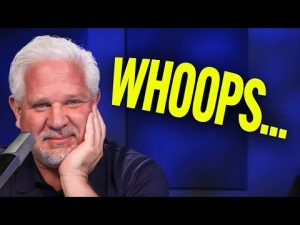In the recent cinematic landscape, “Nos Verado” has emerged as a shining star amidst a sea of mediocrity, garnering attention for its beautiful cinematography and intriguing narrative that graces the horror genre. This film, a remake of F.W. Murnau’s silent classic “Nosferatu,” takes us back to an era where filmmaking was still marinated in passion, artistry, and a sprinkling of copyright controversy. If you’re not familiar, the original was so closely related to Dracula that it incurred the wrath of Bram Stoker’s widow, who demanded destruction of every copy. Thankfully, a few copies survived, allowing us a glimpse into a time when vampires were genuinely terrifying—not just misunderstood beings in questionable romance flicks.
Fast forward to today, and director Robert Eggers has thrown his cape into the ring, deftly reimagining Count Orlok—essentially Dracula—while Bill Skarsgård steps up to play the fiendish role. Joining the cast is Nicholas Hoult, who’s enjoyable to watch, despite occasionally making the viewer wonder why he can’t find anything more substantial than his last couple of roles. Lily-Rose Depp plays the Mina-esque character, adding a layer of allure to the enchanting yet sinister atmosphere. Eggers is no rookie; he has directed notable films such as “The Witch” and “The Lighthouse,” the latter of which some found more pretentious than profound. But in “Nos Verado,” it seems he has strayed from the shores of self-indulgence and set sail towards cinematic beauty.
The strength of “Nos Verado” lies not just in its visual splendor, but also in the tonal echoes of German romanticism and expressionism that seep through its frames. Many might view the gothic castles and crumbling stonework as mere aesthetics. Still, they symbolize a deeper craving for faith in a world that increasingly leans on science and reason. Eggers’ film evokes nostalgia for an era when the supernatural was not merely anecdotal fodder, but an omnipresent reality that demanded reverence. And how refreshing it is! There’s nothing quite like experiencing a vast, ethereal landscape, so beautifully shot that one can almost forget they’re watching characters grapple with their inner demons—literal and figurative.
But, like a vampire at dawn, the film misunderstands its own ending, straying from the fundamental narrative thread and losing its grip on the audience’s emotional investment. As the story veers precariously off the rails, you can almost sense the absence of a guiding moral compass—a metaphysical aspect that’s been diminished by modern secularism. The film’s exploration of female desire manifested through the Count is brilliantly encapsulated in a rare moment where faith might have cast a long shadow over the darkness. Alas, without the belief in something greater, the characters flounder aimlessly, rendering the climax emotionally flat and unsatisfying.
Ultimately, the film’s shortcomings reveal a broader cultural dissonance. In a world where reason has eclipsed faith, “Nos Verado” underlines the existential crisis of our times. Eggers set out to create a tale that resonates with our inherent understanding of good and evil. However, when the characters neglect their own spiritual battles, the story suffers, leaving viewers yearning for a sense of completion. The underlying message—one echoed by characters like Willem Dafoe’s—suggests that we cannot merely rely on science and rational thought to navigate the intricate tapestry of existence. For when God and faith are stripped away, harmony fades, and we find ourselves confronting a chilling void of meaning.
As the credits roll and audiences shuffle out, one can’t help but hope for a resurgence of stories that embrace faith, humanity, and moral complexity. We live in a society starved for narratives that contain depth and multidimensional characters, rather than the cardboard cutouts often parading as “heroes.” In an age where everything is determined by algorithms and audience metrics, may the next wave of creators take a page from Eggers’ work—one that marries stunning artistry with the moral inquiries we desperately need to confront. So, pull up a chair, pop some popcorn, and let’s keep our hopes high for a renaissance of storytelling that reflects the beauty and darkness of our shared journey, even if it requires edging back towards the supernatural.







